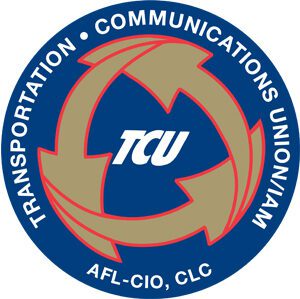As Congress heads home for the month of August they are again “kicking the can” – this time on the Surface Transportation (“Highway”) bill. While the Senate passed its version of the bill, the House of Representatives has refused to bring up the legislation before going on vacation. Now, instead of passing a 6-year authorization (with 3-year funding), the two chambers have voted to extend current funding levels for three months – hoping to give themselves time to come to an agreement on a long-term bill.
For transportation industries – and TCU members – this is an unfortunate delay to a bill that has been months in the making. The Senate’s DRIVE Act includes Amtrak reauthorization language that has been meticulously negotiated, as well as grants and funding levels that would enhance Amtrak service for both customers and its employees. The bill also supports capital investment for hundreds of transit agencies across the country through grant programs like the rail modernization program.
Fortunately, leaders in the House and Senate seem to be getting the message and acknowledge the need for a long-term bill. Senate Majority Leader Mitch McConnell (R-KY) outlined the process for the coming months after the House passes their version in September: “We’ll follow the regular order. We’ll have a conference, we’ll try to work out the differences, and we’ll try to agree to how to pay for it.”
House Transportation and Infrastructure Committee Chairman Bill Shuster (R-PA), who has been trying to whip fellow members around the three month extension, has repeatedly stated that his ultimate goal is to get a long-term bill. “My commitment is, right after it’s done, we all have to sit down … and say what we’re willing to do,” said Shuster.
Much of the controversy over the legislation has stemmed from a Senate amendment added by Sen. Mark Kirk (R-IL) that reauthorizes the Export-Import Bank – a federal lender that helps finance the purchasing of American products overseas. Conservative ideologues in both chambers have stated their inherent opposition to reauthorizing the Bank despite its record of creating American jobs while making money for the federal government. Nevertheless, proponents of the Ex-Im Bank viewed the Highway bill as their best vehicle to see the bank funded.
For TCU members and their employers, the passage of a long-term Highway bill is imperative to the stability of our nation’s infrastructure and the millions of workers that build, maintain, and work on that infrastructure. TCU’s advocates on the Hill have been tirelessly conveying this message to our politicians. Time will tell if they are listening.

